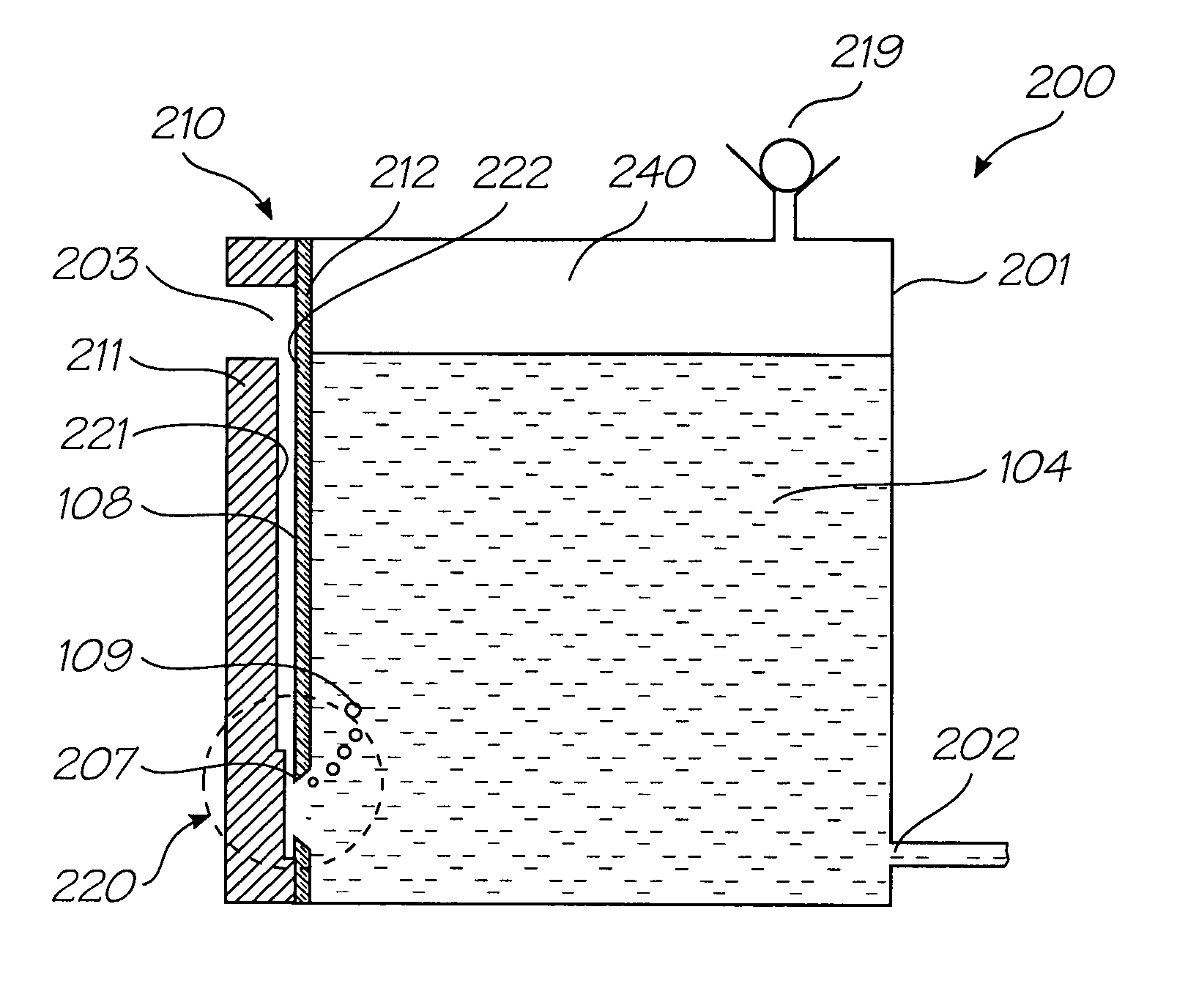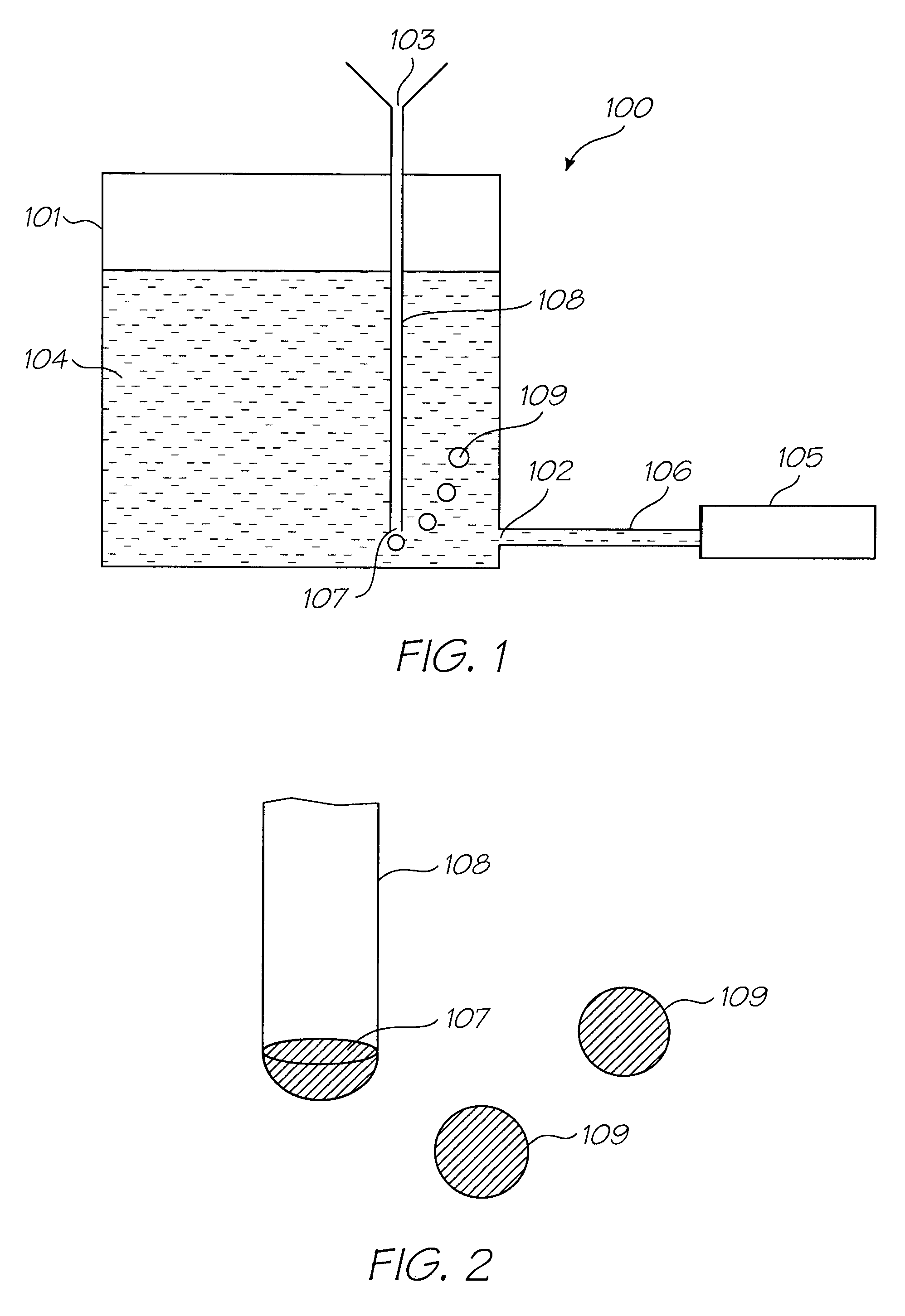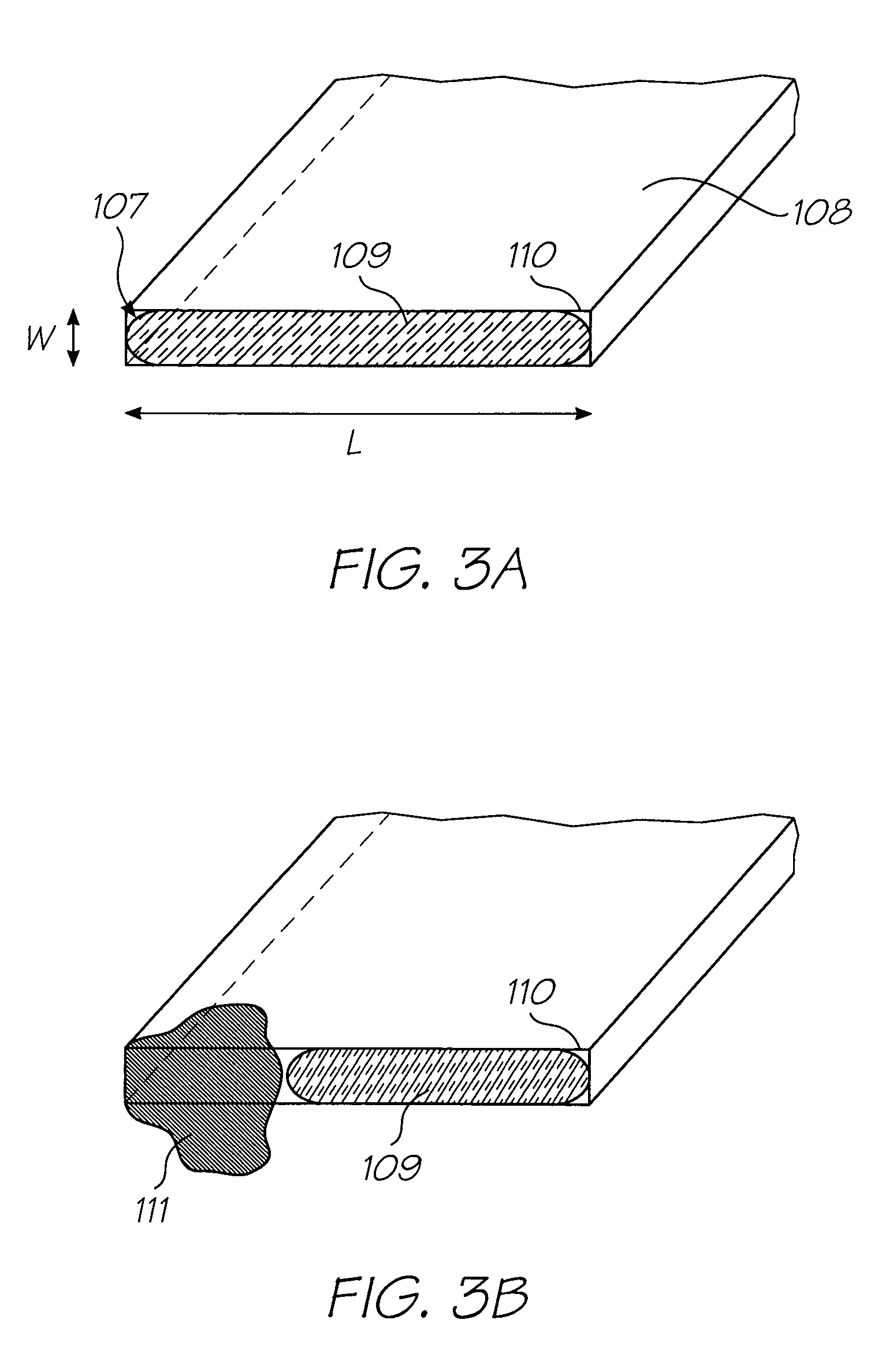Ink pressure regulator using air bubbles drawn into ink
a pressure regulator and inkjet printer technology, applied in printing, other printing apparatus, etc., can solve the problems of insufficient de-priming force, inability to de-prime the chamber, and inability to prevent ink from entering the chamber, so as to minimize the flow resistance in the air channel and minimize the loss of ink through the air inlet
- Summary
- Abstract
- Description
- Claims
- Application Information
AI Technical Summary
Benefits of technology
Problems solved by technology
Method used
Image
Examples
Embodiment Construction
Pressure Regulator with Circular Bubble Outlet
[0168]FIG. 1 shows the simplest form of the present invention, for the purposes of explaining the basic operating principle of the pressure regulator. In FIG. 1, there is shown a pressure regulator 100 comprising an ink chamber 101 having an ink outlet 102 and air inlet 103. The ink chamber 101 is otherwise sealed. The ink outlet 102 is for supplying ink 104 to a printhead 105 via an ink line 106. A bubble outlet 107 is connected to the air inlet 103 via an air channel 108.
[0169]When ink 104 is drawn from the ink chamber 101 by the printhead 105, the displaced volume of ink must be balanced with an equivalent volume of air, which is drawn into the chamber via the air inlet 103. The bubble outlet 107, which is positioned below the level of ink, ensures that the air enters the chamber 101 in the form of air bubbles 109. The dimensions of the bubble outlet 107 determine the size of the air bubbles 109 entering the chamber 101.
[0170]As shown...
PUM
 Login to View More
Login to View More Abstract
Description
Claims
Application Information
 Login to View More
Login to View More - R&D
- Intellectual Property
- Life Sciences
- Materials
- Tech Scout
- Unparalleled Data Quality
- Higher Quality Content
- 60% Fewer Hallucinations
Browse by: Latest US Patents, China's latest patents, Technical Efficacy Thesaurus, Application Domain, Technology Topic, Popular Technical Reports.
© 2025 PatSnap. All rights reserved.Legal|Privacy policy|Modern Slavery Act Transparency Statement|Sitemap|About US| Contact US: help@patsnap.com



